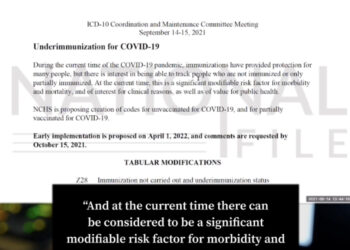Last Updated on December 10, 2022
Nigerian President Muhammadu Buhari complained on Tuesday that the ongoing war in Ukraine is flooding the Lake Chad region with weapons. The U.S. has provided nearly $30 billion in security assistance to Ukraine since last February, while EU nations have provided close to $20 billion. Officials have admitted that some arms shipments have been difficult to track once they enter the conflict zone.
Buhari was speaking at a summit of the Lake Chad Basin Commission (LCBC), a cooperative organization formed in 1964 by Nigeria, Niger, Chad, and Cameroon when he touched on growing concerns of arms trafficking. The LCBC was later expanded to include the Central African Republic (CAR) and Libya as members, plus Egypt and the Democratic Republic of Congo as observers, while its emphasis has shifted from environmental concerns to national security in recent years, Breitbart News reported.
The region has long been plagued by ethnic violence, most notably in recent years from the Islamic extremist group Boko Haram and its splinter group, the Islamic State in West Africa Province (ISWAP). Representatives from the four LCBC members stated that they have experienced “unprecedented levels of crises” over the past decade as a result of the numerous conflicts.
“Regrettably, the situation in the Sahel and the raging war in Ukraine serve as major sources of weapons and fighters that bolster the ranks of the terrorists in the Lake Chad Region,” Buhari told fellow regional leaders on Tuesday.
“A substantial proportion of the arms and ammunition procured to execute the war in Libya continues to find its way to the Lake Chad Region and other parts of the Sahel. Weapons being used for the war in Ukraine and Russia are equally beginning to filter into the region,” he claimed. “This illegal movement of arms into the region has heightened the proliferation of small arms and light weapons which continues to threaten our collective peace and security in the region.”
The Nigerian government recently claimed that more than 90% of Boko Haram fighters have surrendered or been neutralized in the nation’s northeastern Borno state. The government has declared the group defeated in the past, however, only for them to resurface and commit fresh atrocities.
Boko Haram and its ISIS affiliate splinter group have branched out into neighboring nations, however, most notably in Niger but also in Cameroon and the Central African Republic.
“Although terrorist threats have been significantly decimated in the region, it is worthy of note that military actions alone cannot effectively win the war against terrorism,” Buhari told LCBC leaders. “There is the overriding need to complement military operations with the provision of sustainable development projects that will ameliorate the living conditions of the affected people in the region.”
The Nigerian president pointed to Libya’s involvement as a positive step, as the nation was previously a major source of arms flows after the disastrous U.S.-lead intervention that led to a decade of civil war and insurgencies that continue to this day.
As the situation in Libya moderately improves, Buhari warned that arms shipments from Ukraine are now becoming a major security concern in the Lake Chad region. He said weapons from Libya “continue to find their way” to Lake Chad extremist groups, now joined by fresh streams of equipment from Ukraine and Sahel.
Buhari did not elaborate on how weapons from the Ukrainian battlefield were being diverted to Africa, though Western governments have tacitly admitted that there are concerns about arms trafficking stemming from Ukraine. The potential for US weapons sent to Ukraine to fall into the wrong hands is “among a host of considerations” given the “challenging situation” as the war continues, said Bonnie Denise Jenkins, who serves as the U.S. undersecretary for arms control and international security, back in July.
“The US very seriously takes our responsibility to protect American origin defense technologies and prevent their diversion or illicit proliferation,” Jenkins told reporters in Brussels, adding that the US was in “continued contact” with the Ukrainian government on the issue. “We are confident in the Ukrainian government’s commitment to appropriately safeguard and account for US [weapons],” Jenkins added.



















